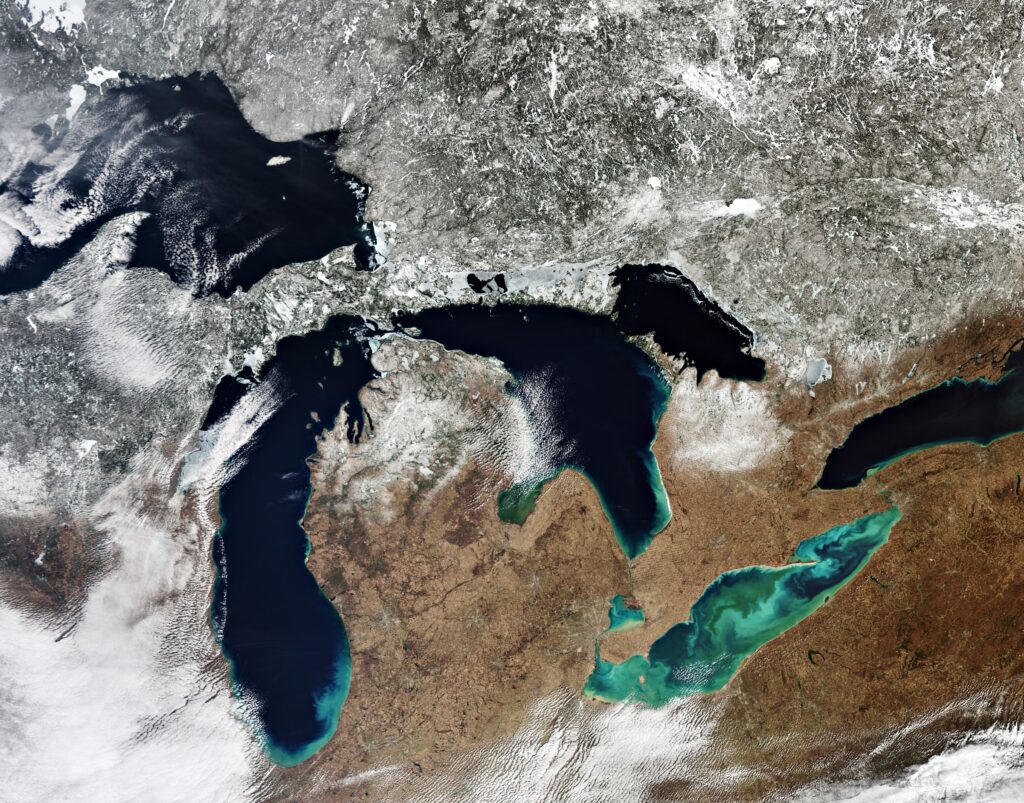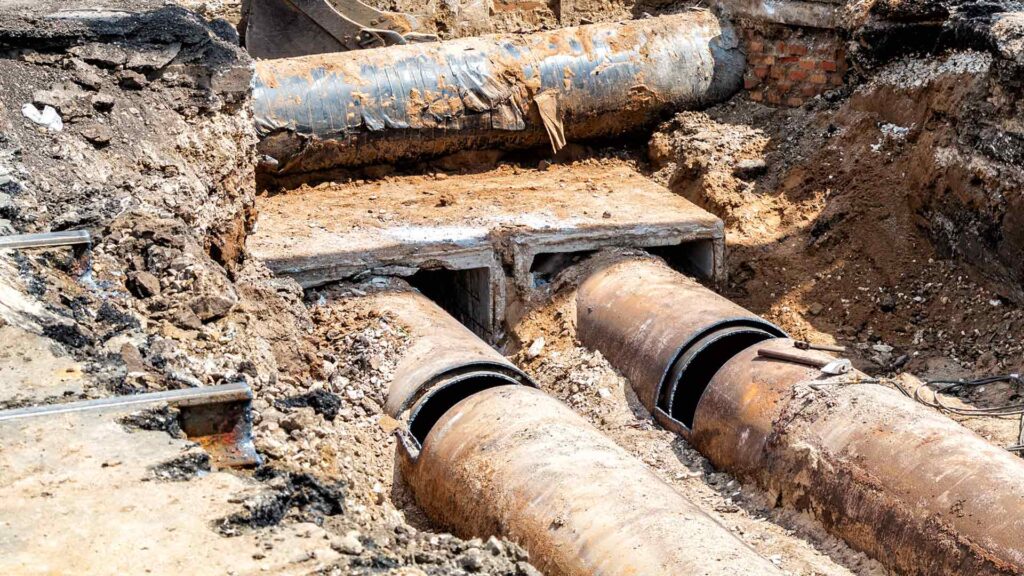A Note from GLPF –
Calling all small municipalities in Michigan, Illinois, and Wisconsin with big needs and even bigger ideas on improving their water and wastewater systems – but could use a little help getting started.
I’m pleased to share this guest blog by Jake Adams, Senior Advisor at the Environmental Policy Innovation Center (EPIC). Jake introduces a new low-interest loan fund designed to help small communities pay for the early planning and design work needed before they can access larger pools of federal and state funding for infrastructure improvements.
Read the article to learn how this unique partnership between the Great Lakes Protection Fund, EPIC, and IFF (CDFI) will improve Great Lakes water quality and how to access this unique funding and technical assistance. Jake and his team are ready to support you through the process so you can finally make the water and wastewater system improvements you’ve wanted but haven’t had the time or resources to do.
Shannon Donley, Senior Program Lead

It is no secret – The Great Lakes, which make up one of the world’s most important freshwater resources, are under constant threat from aging infrastructure, agricultural runoff, poor stormwater management, and industrial discharge. These ongoing issues endanger the environment and pose significant risks to public health. Small municipalities and water utilities in the region often struggle to secure funding for the infrastructure improvements necessary to combat these problems.
As is often said, timing is everything. Enacted into law in November 2021, the Infrastructure Investment and Jobs Act – also known as the Bipartisan Infrastructure Law – has activated billions of dollars for improved water infrastructure projects across the United States. To maximize these federal financial resources and deploy funding toward improving the ecological health of the Great Lakes, the time is now ripe for more awareness and focus on water quality concerns, as well as outside-the-box thinking to find new ways to leverage philanthropic capital into long-term financing and meaningful outcomes.
In a significant move to address the growing water infrastructure challenges in the Great Lakes region, the Environmental Policy Innovation Center (EPIC) has developed and launched the Great Lakes Water Infrastructure Loan Fund. With an up to $1 million capital commitment, made possible by support from the Great Lakes Protection Fund (GLPF), this program promises to bring much-needed assistance to under-resourced municipalities in Illinois, Michigan, and Wisconsin. It will help communities improve water quality by accelerating predevelopment activities (e.g. engineering studies, financial analysis, asset management planning, rate studies, project design, and bid document preparation for construction) for vital infrastructure projects. Without the upfront capital to fund predevelopment activities many small and financially distressed water systems may struggle to overcome the hurdle of applying for and receiving federal water infrastructure funding.
Meeting Urgent Needs with Targeted Support
EPIC’s Great Lakes Water Infrastructure Loan Fund is designed to reduce the burden of accessing available federal and state resources. The fund provides much-needed predevelopment financial assistance to eligible communities, helping them prepare competitive applications for federal loan programs such as the State Revolving Fund (SRF) and the United States Department of Agriculture (USDA) infrastructure loans.

For under-resourced communities, this could be a game changer. In many instances, water infrastructure projects never materialize, not from a lack of desire, but simply by not having the funding necessary to hire technical assistance and consultants to define the scope of a project and put the financing application wheels into motion. A vast number of public utilities are struggling to balance affordable rates with the need to improve and maintain aging systems. In many instances, communities struggle to keep their current systems operating on a daily basis – and don’t have the time or the resources to think about acquiring financing for major capital improvements.
Partnerships Driving Change
A successful infrastructure loan program for under-resourced communities starts with an effective and dynamic lender. IFF, a community development financial institution (CDFI) based in Chicago, has been selected as the loan servicer for this new program. With a long history of working with under-resourced communities across the Great Lakes, IFF brings invaluable expertise to the table. IFF’s mission as a community development financial institution shares great alignment and common purpose with improving public water infrastructure. After all, water is a critical public resource and essential to any community. A sense of shared vision for improved environmental outcomes for the Great Lakes and its tributaries was also critical to forging this dynamic partnership.
Maximizing Federal Funding Opportunities
A key motivation behind the creation of this loan fund is to help communities take advantage of unprecedented federal funding opportunities, especially those created by the Bipartisan Infrastructure Law. With its targeted funding to smaller and under-resourced communities to cover the initial costs associated with planning and design, the barriers to securing larger federal loans will be removed. Once a project receives federal funding, the principal and interest from the loan fund can be reimbursed from the proceeds, making the program even more attractive to communities struggling with limited resources.
A Future of Safe, Clean Water for All
The Great Lakes are not just a regional asset—they are a national treasure. Ensuring that the water quality in this region is protected and improved is not only an environmental issue but also a public health and economic priority. By providing financial and technical assistance to under-resourced communities, the Great Lakes Water Infrastructure Loan Fund will help municipalities accelerate critical infrastructure upgrades, ensuring that future generations continue to have access to clean, safe water and preserving the vital water resources provided by the Great Lakes.
If you’re part of a community that could benefit from this fund, EPIC encourages you to apply. You can learn more about eligibility and submit a request for assistance on EPIC’s website. Together, we can help protect the Great Lakes for years to come through this catalytic financing opportunity.
About the Author
Jake Adams | jadams@policyinnovation.org
Senior Advisor, Conservation & Infrastructure Finance
A native of Virginia, Jake works with projects and transactions financing infrastructure with public sources, establishing predevelopment loan funds for drinking water and conservation, and aiding in the creation of philanthropic and private finance mechanisms to support infrastructure funding. His prior professional roles include positions as Director of Administration of the Blue Ridge Resource Authority in Rockbridge County, Virginia and Director of Finance of the City of Lexington, Virginia. Jake’s experience includes development of a new regional public service authority, bond issuance and finance agreement transactions to support water/wastewater and solid waste infrastructure, capital improvement planning and financial modeling for water/wastewater and solid waste systems, conduit financing and refunding programs for private and non-profit organizations, economic development loans and grants for small businesses, and annual budget and audit functions. He received his B.A. in Political Science from Virginia Tech, Graduate Certificate in Procurement and Contracts Management from the University of Virginia, and Master of Public Administration (M.P.A.) degree from the University of North Carolina at Chapel Hill.
